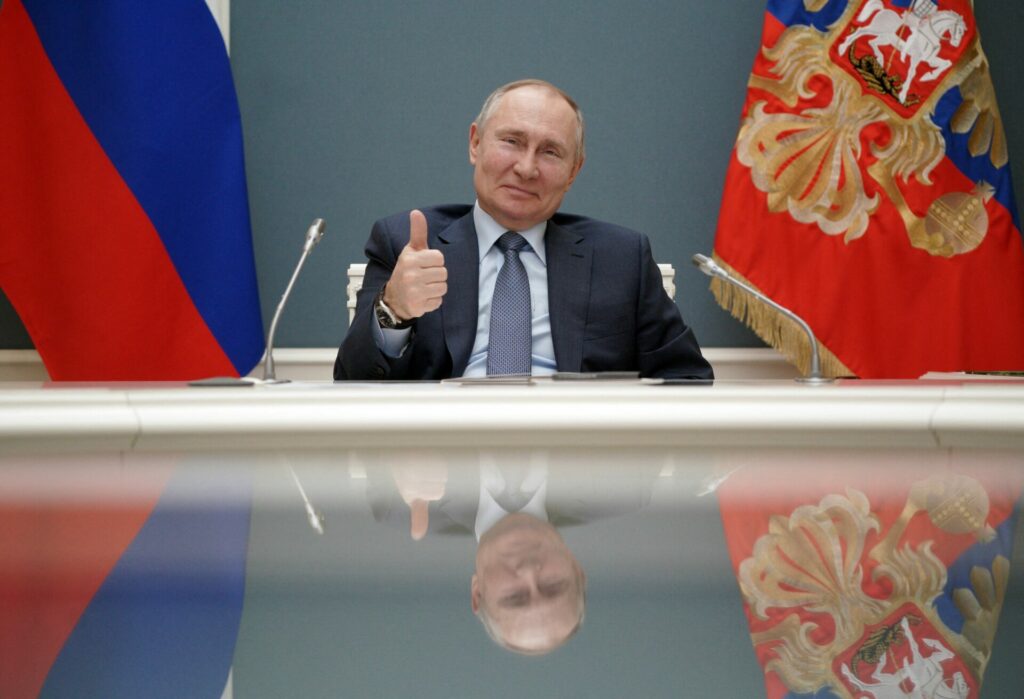
Five reasons that Russia’s nuclear exports will continue, despite sanctions and the Ukraine invasion. But for how long?
Posted: 19th May 2022
By Marina Lorenzini, Francesca Giovannini | May 17, 2022

Russian President Vladimir Putin participates via video link in a ceremony to launch the construction of a third reactor of the Turkish nuclear power plant built by Russia’s energy giant Rosatom, in Moscow on March 10, 2021. (Photo by ALEXEY DRUZHININ/SPUTNIK/AFP via Getty Images)
By many measures, Russia’s state-controlled nuclear energy company, Rosatom, has primacy in the global nuclear energy market. At any given moment, the firm provides technical expertise, enriched fuel, and equipment to nuclear reactors around the world. The Russian invasion of Ukraine and, more acutely, the Russian military’s dangerous actions at the Zaporizhzhia nuclear power plant and in the Chernobyl exclusion zone have many countries rethinking their dependence on Russian nuclear products and searching for alternatives. Additionally, the ensuing global effort to cripple Russian access to international markets calls into question the viability of current contracts, government licensing, and financial instruments involved in Russia’s nuclear exports.